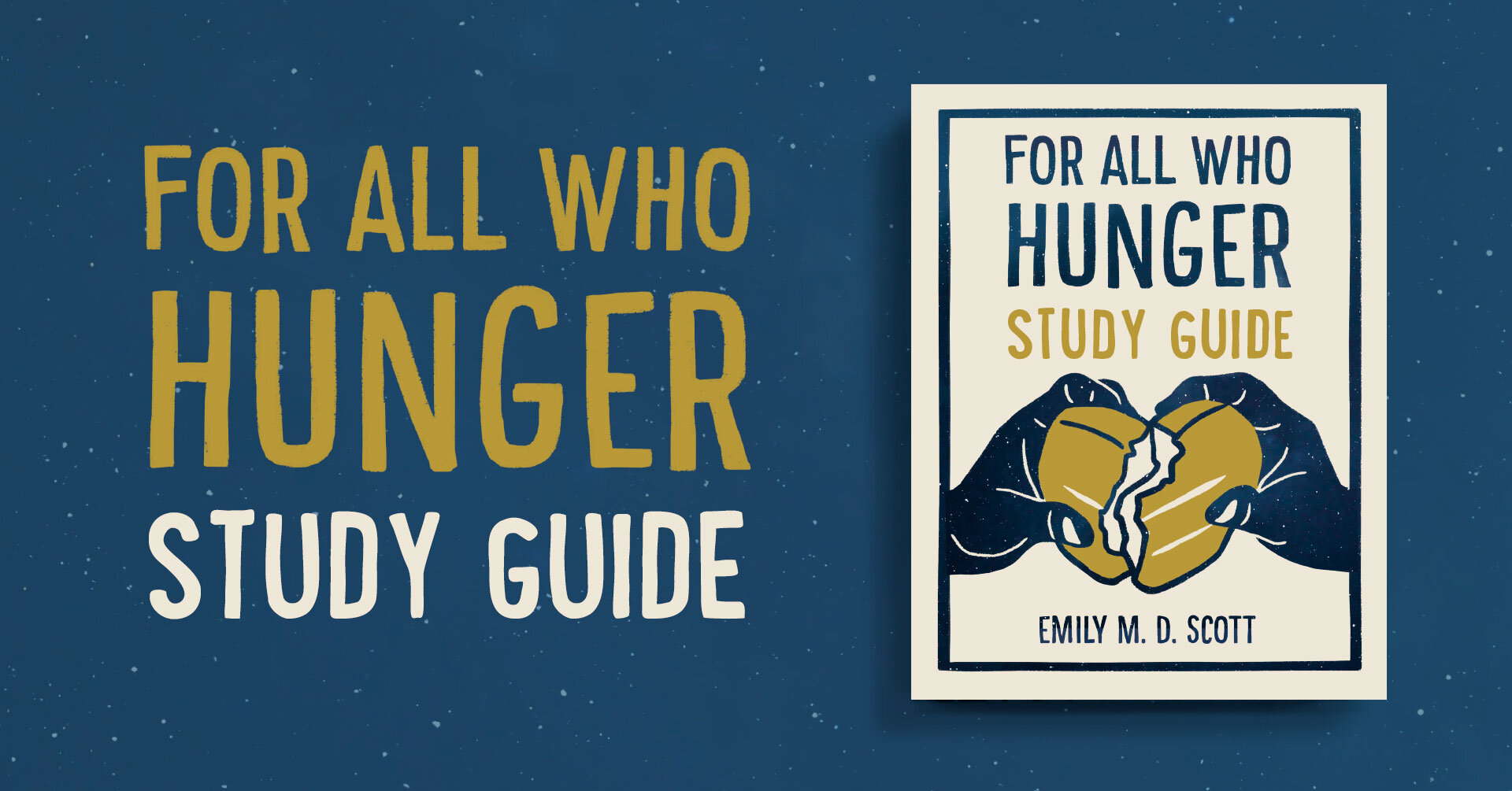In her debut book, For All Who Hunger, Scott weaves stories and reflections from the life of her unlikely congregation, St. Lydia’s, in prose both beautiful and incisive.
She explores how small acts of connection hold more power than we realize in a time when our differences are being weaponized, creating activism and justice work fueled by empathy and relationship.
Learn, discuss, and theologically reflect with the “For All Who Hunger study guide.
The guide includes prompts for journaling, questions for discussion, and actions to take for each chapter of For All Who Hunger, reflecting on God’s call to follow, to connect with our neighbors, and to work for a more just world.
Whether you’re reading For All Who Hunger with a congregation, book club, or in the classroom, the study guide provides the starter for rich conversations.
Praise
“In this intimate and openly heartfelt debut memoir, Scott explores the power of faith and community as strength-building resources for navigating difficult times . . . [A] moving personal memoir and an accessibly reverent meditation on finding faith through unconventional acts of worship. Highly inspiring for anyone seeking solace in our modern world.”
“Exceptional . . . Scott’s writing is leavened by a healthy dose of self-awareness, and her stories capture the humanity of her mission and community with a light sacramental touch.”
-Publisher’s Weekly (Starred Review)
“Scott’s theology is practical, leavened with grace and humor, and this would make a great next read for fans of Rachel Held Evans and Nadia Bolz-Weber.”
-Booklist (starred review)
Summary
Emily Scott never planned on becoming a pastor. But when she started a church for misfits that met over dinner in Brooklyn, she discovered an unlikely calling–and an antidote to modern loneliness.
As founding pastor of St. Lydia’s Brooklyn, where worship takes place over a meal, Emily Scott spent eight years ministering to a scrappy collective of people with different backgrounds, incomes, and levels of social skills. Each week, they broke bread, sang hymns, made awkward conversation with strangers, and then did the dishes. But in a city where everyone lives on top of each other, yet everyone is lonely, these gatherings filled a longing that most people–even Emily–didn’t realize they felt.
Scott weaves stories and reflections from the life of her unlikely congregation in prose both beautiful and incisive. She explores how small acts of connection hold more power than we realize in a time when our differences are being weaponized, creating activism and justice work fueled by empathy and relationship. Recalling her journey as a single woman and a pastor looking for love and friendship in a city of millions, For All Who Hunger articulates the value of church as a place where people can hear not only that they are loved, but that they are good. When Emily’s congregation builds relationships with their neighbors in one of the world’s most unequal cities, they find courage and resources to begin working for a more just world.
For All Who Hunger is a story about faith that invites us to live with eyes wide open. There’s a place for you at the table.


